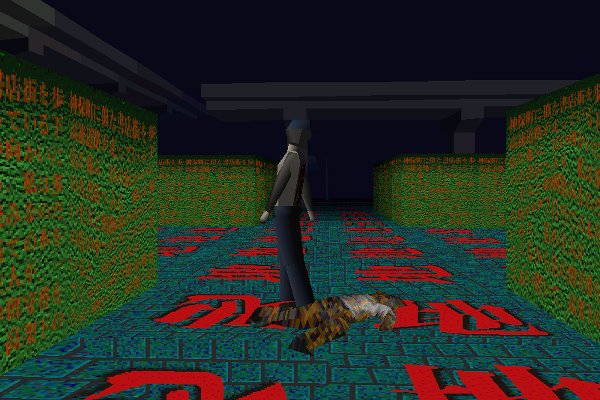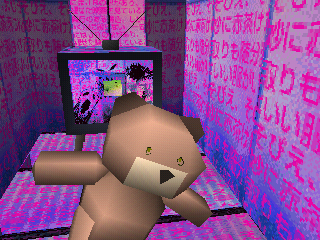
Players will also sometimes encounter a written recollection of a dream taken directly from the dream journal of multimedia artist Osamu Sato, who produced and directed LSD: Dream Emulator for Asmik Ace Entertainment. Eventually the dream ends, and the player is given a readout that scores the dream they experienced across two axes: “Downer” to “Upper,” and “Static” to “Dynamic.” Coming into contact with a wall or object transports the player to a new environment, which interprets (but may not actually utilize) the data generated by the previous environment in order to evolve the dream sequence.
#Japanese lsd game iso#
ISO image of the original disc (that you’ll have to acquire on your own) using a program called PPF-O-Matic.Īs can be seen in the above video from friends of the site RetroPals, LSD: Dream Emulator is a colorful, enigmatic, and periodically terrifying game that, in modern terms, would best be referred to as a “walking simulator.” Players traverse randomly generated environments while experiencing randomly generated music and sounds, which may or may not have other creatures or characters in them.
#Japanese lsd game Patch#
In order to play the English version of the game, you’ll need to apply the patch to a.

The patch was constructed by two developers known as Mr.Nobody and Arcanearia, who implemented existing translations of in-game texts from the LSD: Dream Emulator Fandom wiki. Available as of last Friday, an English language patch for LSD: Dream Emulator can be downloaded from Romhacking dot net, a website that trades in such wares. Can you believe that people in 1998 weren’t immediately sold on the idea of a procedurally generated first-person exploration game based on the contents of a single developer’s exhaustively maintained dream journal? Hard to swallow, but it’s true! And as such, LSD: Dream Emulator never made it out of Japan, and was thus never localized into other languages. Some games, such as LSD: Dream Emulator, proved too bizarre even for the anything goes style of martial arts design that came to define that era Japanese games.

Of course, not every PlayStation experiment lead to the establishment of a new genre.
#Japanese lsd game series#
Would Hatsune Miku’s Project Diva series exist without early PlayStation rhythm games like Parappa the Rapper? Would Cooking Mama exist as it does today without Ore no Ryouri? Even something like Dark Souls can trace its lineage back to a single PlayStation game that made a lot of unorthodox decisions.

It seemed like developers had carte blanche to try basically whatever they wanted, and this resulted in a lot of experimental games that, while bizarre at the time, would eventually become mainstays of the video game industry. The late 90s were a wild time for the PlayStation, especially in Japan.


 0 kommentar(er)
0 kommentar(er)
